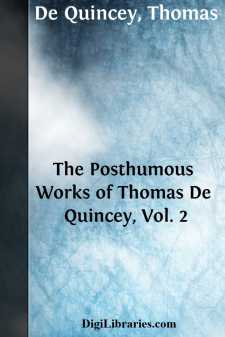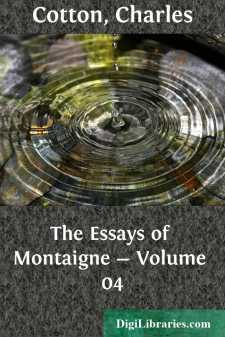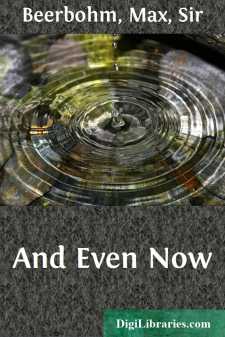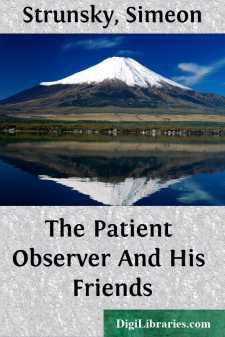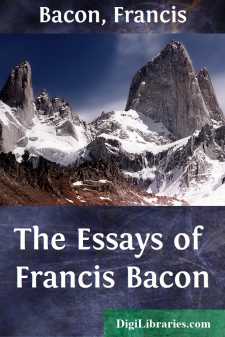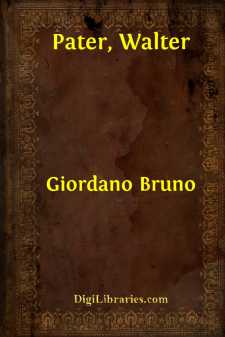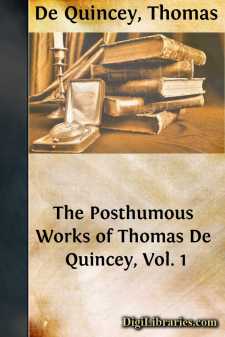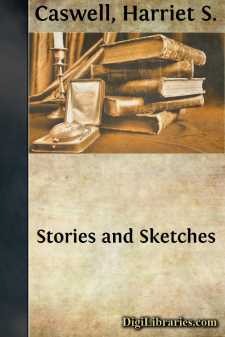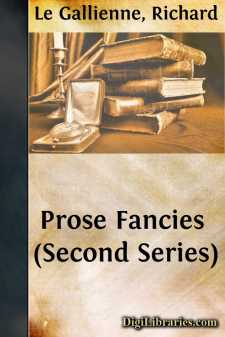Literary Collections
- American 84
- Ancient, Classical & Medieval 14
- Asian 1
- Australian & Oceanian 1
- Canadian 55
- Continental European 121
- English, Irish, Scottish, Welsh 179
- Essays
- General 24
- Letters 46
- Middle Eastern 1
Essays Books
Sort by:
INTRODUCTION. All that needs to be said in the way of introduction to this volume will best take the form of notes on the articles which it contains. I. 'Conversation and S. T. Coleridge.' This article, which was found in a tolerably complete condition, may be regarded as an attempt to deal with the subject in a more critical and searching, and at the same time more sympathetic and inclusive...
more...
by:
Charles Cotton
He seems to me to have had a right and true apprehension of the power of custom, who first invented the story of a country-woman who, having accustomed herself to play with and carry a young calf in her arms, and daily continuing to do so as it grew up, obtained this by custom, that, when grown to be a great ox, she was still able to bear it. For, in truth, custom is a violent and treacherous...
more...
by:
Henry Van Dyke
PRELUDEAN ANGLER'S WISH IN TOWNWhen tulips bloom in Union Square,And timid breaths of vernal airAre wandering down the dusty town,Like children lost in Vanity Fair; When every long, unlovely rowOf westward houses stands aglowAnd leads the eyes toward sunset skies,Beyond the hills where green trees grow; Then weary is the street parade,And weary books, and weary trade:I'm only wishing to go...
more...
by:
Max Beerbohm
A RELIC 1918. Yesterday I found in a cupboard an old, small, battered portmanteau which, by the initials on it, I recognised as my own property. The lock appeared to have been forced. I dimly remembered having forced it myself, with a poker, in my hot youth, after some journey in which I had lost the key; and this act of violence was probably the reason why the trunk had so long ago ceased to travel. I...
more...
by:
Simeon Strunsky
COWARDS It was Harrington who brought forward the topic that men take up in their most cheerful moments. I mean, of course, the subject of death. Harrington quoted a great scientist as saying that death is the one great fear that, consciously or not, always hovers over us. But the five men who were at table with Harrington that night immediately and sharply disagreed with him. Harding was the first to...
more...
by:
Francis Bacon
Of Truth WHAT is truth? said jesting Pilate, and would not stay for an answer. Certainly there be, that delight in giddiness, and count it a bondage to fix a belief; affecting free-will in thinking, as well as in acting. And though the sects of philosophers of that kind be gone, yet there remain certain discoursing wits, which are of the same veins, though there be not so much blood in them, as was in...
more...
by:
Walter Pater
[234] IT was on the afternoon of the Feast of Pentecost that news of the death of Charles the Ninth went abroad promptly. To his successor the day became a sweet one, to be noted unmistakably by various pious and other observances; and it was on a Whit-Sunday afternoon that curious Parisians had the opportunity of listening to one who, as if with some intentional new version of the sacred event then...
more...
GENERAL INTRODUCTION. These articles recovered from the MSS. of De Quincey will, the Editor believes, be found of substantive value. In some cases they throw fresh light on his opinions and ways of thinking; in other cases they deal with topics which are not touched at all in his collected works: and certainly, when read alongside the writings with which the public is already familiar, will give...
more...
TERRY DOLAN. ome years since circumstances caused me to spend the summer months in a farming district, a few miles from the village of E., and it was there I met with Terry Dolan. He had a short time previous come over from Ireland, and was engaged as a sort of chore boy by Mr. L., in whose family I resided during my stay in the neighborhood. This Terry was the oddest being with whom I ever chanced to...
more...
A SEVENTH-STORY HEAVEN At one end of the city that I love there is a tall, dingy pile of offices that has evidently seen more prosperous fortunes. It is not the aristocratic end. It is remote from the lordly street of the fine shops of the fair women, where in the summer afternoons the gay bank clerks parade arm-in-arm in the wake of the tempestuous petticoat. It lies aside from the great exchange...
more...


